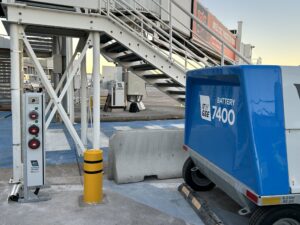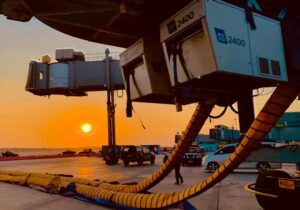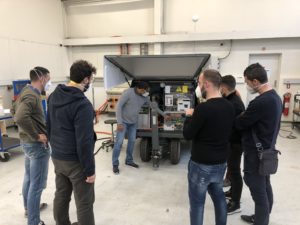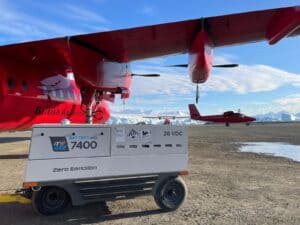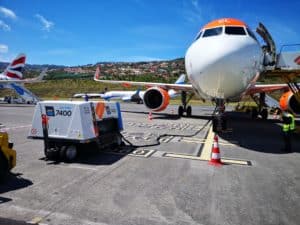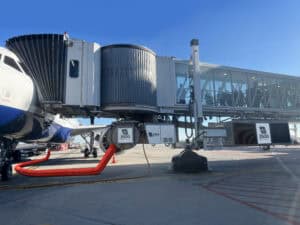Complete Guide for Aviation GSE

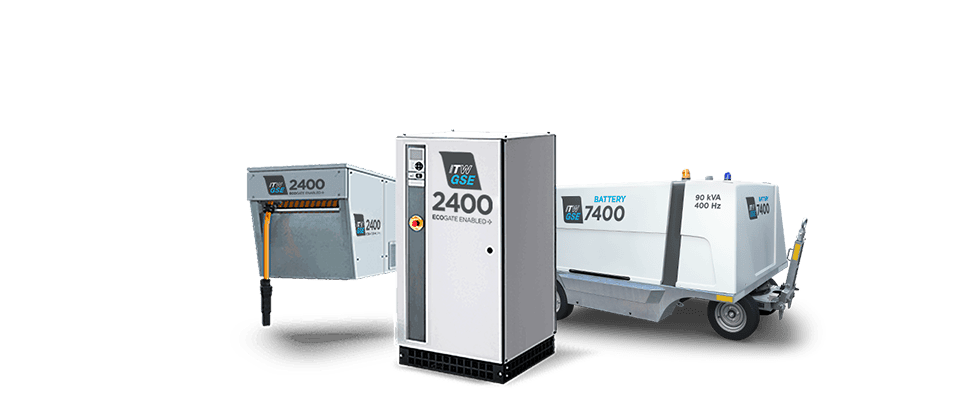
What is Ground Support Equipment (GSE)?
Understanding Ground Support Equipment (GSE)
Ground Support Equipment (GSE) refers to the specialized equipment used at airports to service aircraft during the time between flights when the aircraft is parked at the gate, in a hangar, or at a remote stand. This equipment plays a crucial role in maintaining efficient airport operations and ensuring aircraft are properly serviced before their next departure.
The primary function of GSE is to support on-ground operations when aircraft are not in flight. While aircraft operate independently during flights, they require various support services once they land. GSE encompasses a wide range of equipment designed to meet different needs of aircraft servicing, making it an essential component of airport infrastructure.
The Critical Role of GSE in Airport Operations
Ground Support Equipment is fundamental to airport operations for several reasons:
- Efficient Turnaround: GSE significantly impacts turnaround time — the period an aircraft spends on the ground between flights. Efficient GSE helps minimize this time, allowing for more flights and improved operational efficiency.
- Safety Assurance: Proper ground handling equipment ensures the safety of both the aircraft and ground personnel during servicing operations.
- Operational Continuity: Without appropriate GSE, many essential ground operations would be impossible to perform, leading to delays, cancellations, and operational disruptions.
- Passenger Comfort: Equipment like Pre-Conditioned Air (PCA) units contributes directly to passenger comfort by maintaining appropriate cabin temperature while the aircraft is on the ground.
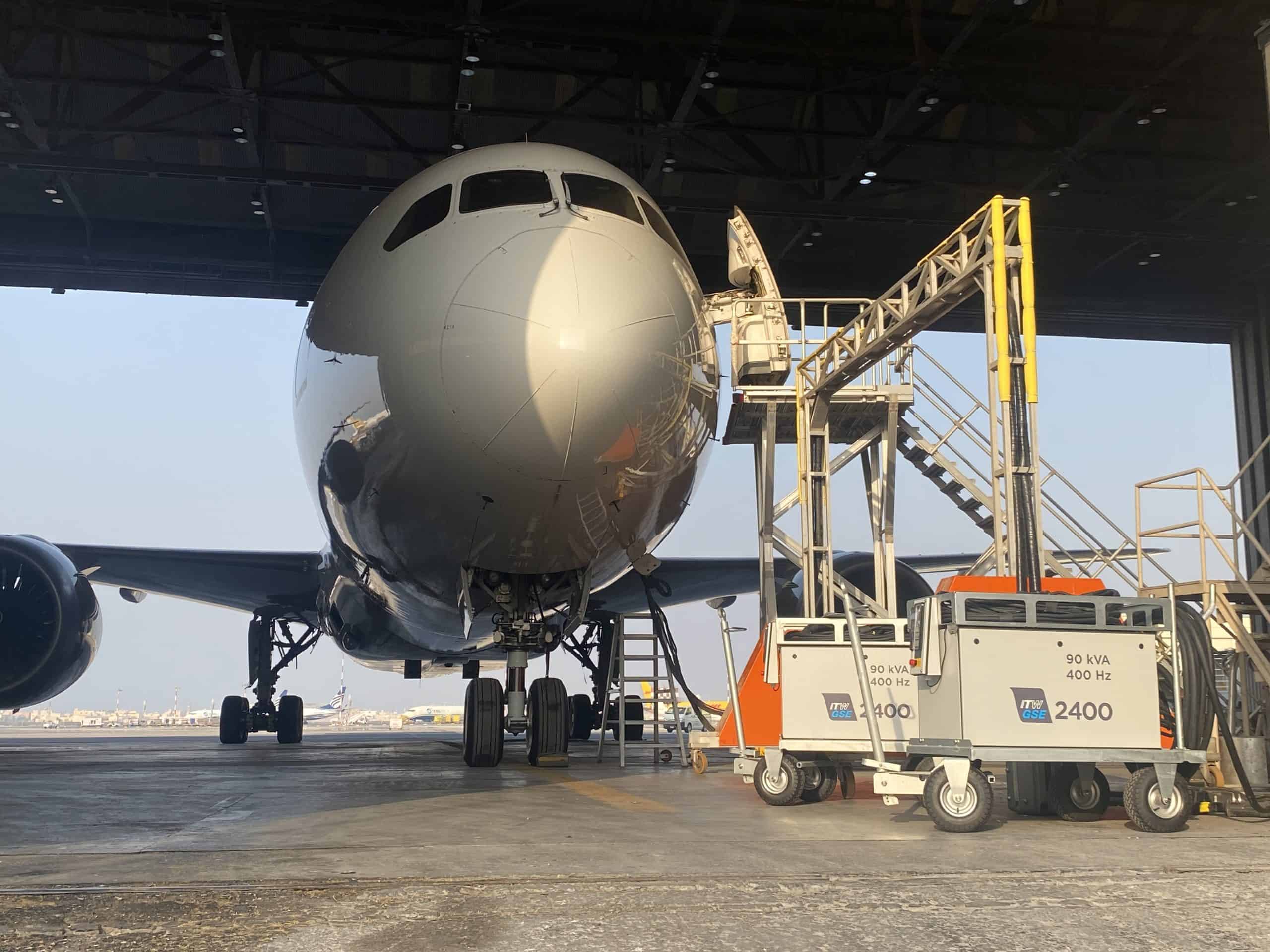
Types of Ground Support Equipment
Ground Support Equipment can be categorized into non-powered and powered equipment, each serving specific functions in aircraft servicing:
Non-Powered GSE
Non-powered GSE includes equipment that doesn't require its own power source to operate:
- Service Stairs: Used for boarding and deboarding when jet bridges are unavailable
- Chocks: Wedges placed against aircraft wheels to prevent unintended movement
- Aircraft Maintenance Stands: Platforms allowing technicians to access different parts of the aircraft
- Dollies: Used for transporting cargo, baggage, and other items between aircraft and terminal
Powered GSE
Powered GSE includes equipment with their own power sources, enabling more complex operations:
At ITW GSE, we supply you with GPUs, eGPUs and PCAs.
| Type of Equipment | Primary Function | Key Benefits |
| Ground Power Units (GPUs) | Provide electrical power to aircraft | Eliminates need for running APUs, reducing fuel consumption and emissions |
| Pre-Conditioned Air Units (PCAs) | Supply temperature-controlled air to the cabin | Maintains passenger comfort, reduces energy consumption |
| Pushback Tractors | Move aircraft away from gates | Ensures safe aircraft movement on the ground |
| Belt Loaders | Load/unload baggage and cargo | Speeds up turnaround process |
| Container Loaders | Handle unit load devices (ULDs) | Enables efficient handling of containerized cargo |
| Passenger Buses | Transport passengers between terminals and remote aircraft | Ensures passenger safety on the apron |
| Fuel Trucks | Deliver fuel to aircraft | Critical for flight preparation |
The Importance of Reliable Ground Support Equipment
The reliability of ground support equipment directly affects several aspects of airport operations:
Minimizing Turnaround Time
Quick, efficient turnarounds are essential for airlines to maintain schedules and maximize aircraft utilization. Reliable GSE ensures these operations proceed without delays, allowing for:
- Faster passenger boarding and deboarding
- Efficient baggage and cargo handling
- Timely refueling and servicing
Ensuring Safety on the Apron
The airport apron is a high-activity area where multiple operations occur simultaneously. Dependable GSE helps maintain safety by:
- Providing stable power and air conditioning
- Enabling secure aircraft movement
- Facilitating safe passenger transport between aircraft and terminals
Contributing to Cost Efficiency
Efficient ground operations translate to significant cost savings for airlines and airports:
- Reduced delays mean fewer compensation payments to passengers
- Optimized aircraft utilization increases revenue opportunities
- Lower fuel consumption when aircraft don't need to run auxiliary power units
Clean, Reliable, and Cost-Efficient GSE Solutions
Modern aviation faces increasing demands for sustainability and efficiency. Today's ground support equipment must meet several key criteria:
Clean GSE Solutions
Environmental considerations are becoming increasingly important in aviation. Clean GSE options include:
- Battery-powered eGPUs that produce zero emissions at the point of use
- Solid-state power converters that are more energy-efficient
- Equipment designed to reduce noise pollution on the apron
Reliability in Extreme Conditions
GSE must perform consistently regardless of environmental conditions.
ITW GSE ground support equipment is:
- tested to function in arctic cold and desert heat
- designed to withstand high humidity and salty air in coastal airports
- built for continuous operation under heavy usage
Cost-Efficiency Through Innovation
Smart design features help reduce the total cost of ownership:
- Energy-efficient systems reduce operational costs
- Modular designs simplify maintenance and repairs
- Durable construction extends service life beyond 15-20 years with proper maintenance
Essential GSE Components for Aircraft Support
Several key GSE components are critical for comprehensive aircraft support:
Power Systems
Aircraft require external power when their engines and auxiliary power units are shut down. Modern power solutions include:
- Solid-state 400 Hz Ground Power Units for fixed installation
- Battery-powered eGPUs for environmentally friendly mobile power
- 28V DC power units for smaller aircraft and helicopter support
- Combination units offering both 400 Hz and 28V DC output
Air Conditioning Systems
Maintaining comfortable cabin temperatures is essential when aircraft are on the ground:
- Pre-Conditioned Air units that deliver properly tempered air
- Systems with soft-start capability to reduce mechanical stress
- Point-of-use cooling technology for maximum efficiency
- Flexible solutions for various aircraft types and climate conditions
Connectivity Components
Effective connections between GSE and aircraft are crucial:
- High-quality 400 Hz cables for reliable power transfer
- ETL-listed cables meeting UL standards for safety
- Durable hoses for air conditioning delivery
- Quick-connect systems for efficient aircraft servicing
Specialized Maintenance Equipment
Beyond basic servicing, aircraft require specialized maintenance equipment:
- Avionics test equipment for electronic systems verification
- Engine maintenance tools for regular inspections
- Specialized access platforms for different aircraft areas
- Diagnostic tools for troubleshooting aircraft systems
GSE Maintenance and Lifecycle Management
The effective maintenance of ground support equipment is crucial for safety, reliability, and cost management:
Preventive Maintenance Schedules
Regular maintenance extends equipment life and prevents costly downtime:
- Daily operational checks for critical functions
- Scheduled service intervals based on usage hours
- Seasonal preparations for extreme weather conditions
- Component replacement before failure (predictive maintenance)
Lifecycle Considerations
Understanding the full lifecycle of GSE helps in planning and budgeting:
- Expected service life of 15-20 years with proper maintenance
- Reduced wear on components in solid-state vs. rotating equipment
- Benefits of soft-start technology in extending mechanical components' lifespan
- Considerations for equipment upgrade vs. replacement decisions
Training and Operation
Proper operation significantly impacts equipment longevity:
- Operator training to prevent misuse and damage.
You can book your next training at our Training Academy. - Documentation of operating procedures
- Adherence to manufacturer guidelines
- Regular skills assessment and refresher training
Choosing the Right Ground Support Equipment
Selecting appropriate GSE involves considering several factors:
Operational Requirements
Different airport environments have unique GSE needs based on:
- Climate conditions
- Gate configurations
- Types of aircraft served
- Flight frequency and turnaround requirements
Environmental Considerations
Modern airports increasingly prioritize environmental performance:
- Electric options to reduce carbon emissions
- Noise reduction features
- Energy efficiency ratings
- Compliance with environmental regulations
Total Cost of Ownership
The initial purchase price is only one factor in GSE evaluation:
- Maintenance requirements and costs
- Expected service life
- Energy consumption
- Parts availability and service support
The Future of Ground Support Equipment
The GSE industry continues to evolve with several emerging trends:
Electrification
The move toward electric-powered GSE offers multiple benefits:
- Reduced emissions at point of use
- Lower noise levels
- Decreased operational costs
- Improved working conditions for ground staff
Automation and Connectivity
Smart features are increasingly common in modern GSE:
- Remote monitoring capabilities
- Predictive maintenance systems
- Integration with airport management systems
- Data collection for operational optimization
Sustainability Focus
Environmental considerations are driving GSE innovation:
- Equipment designed for energy efficiency
- Materials selected for durability and recyclability
- Systems optimized to reduce resource consumption
- New technologies for zero-emission operations
Why Choose High-Quality GSE for Your Airport Operations
Investing in superior ground support equipment brings significant benefits:
Operational Excellence
Quality GSE contributes to operational excellence through:
- Consistent performance under varying conditions
- Reduced downtime and maintenance requirements
- Enhanced reliability during peak operational periods
- Support for efficient turnaround processes
Environmental Responsibility
Modern GSE solutions help airports and airlines meet sustainability goals:
- Lower carbon footprint through electric and hybrid options
- Reduced noise pollution improving airport environment
- Energy efficiency reducing resource consumption
- Alignment with environmental compliance requirements
Financial Performance
Superior GSE positively impacts the bottom line:
- Lower total cost of ownership over equipment lifetime
- Reduced operational disruptions and associated costs
- Energy savings through efficient designs
- Extended service life reducing replacement frequency
What is Ground Support Equipment (GSE)?
Ground Support Equipment refers to the tools and machines used to service aircraft between flights while they are parked at the gate, in a hangar, or at a remote stand. It ensures aircraft are powered, cooled, loaded, refueled, and ready for the next departure.
What does GSE do at an airport?
GSE enables critical ground operations such as providing electrical power, air conditioning, moving aircraft, loading baggage and cargo, and transporting passengers. It plays a key role in reducing turnaround time and maintaining safe, efficient airport workflows.
What are the main types of Ground Support Equipment?
GSE includes both non-powered and powered equipment. Non-powered examples are chocks, service stairs, and maintenance stands. Powered GSE includes ground power units (GPUs), pre-conditioned air units (PCAs), pushback tractors, and belt loaders.
What is electrical Ground Support Equipment?
Electrical GSE refers to battery-powered or grid-connected equipment like eGPUs and solid-state GPUs. These solutions reduce emissions and noise while improving energy efficiency and reliability on the apron.
Why is reliable GSE important for airport operations?
High-quality GSE improves safety, minimizes delays, lowers operating costs, and enhances passenger comfort. It also supports sustainability goals through reduced emissions and efficient energy use.


